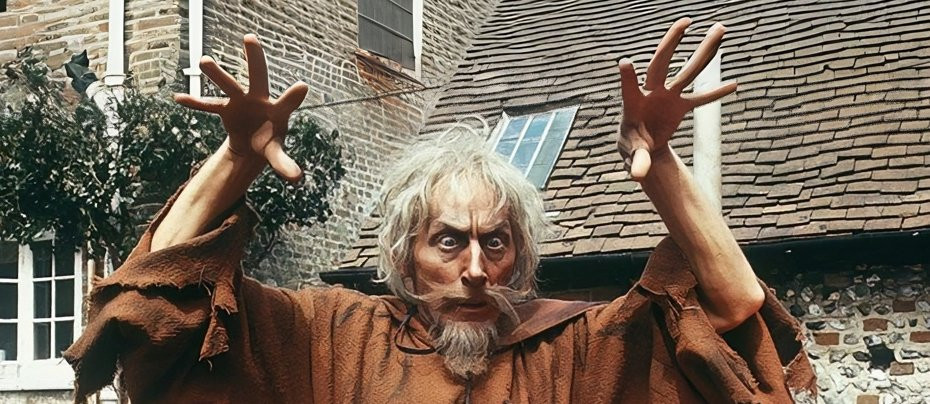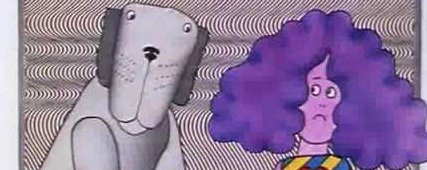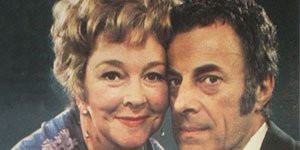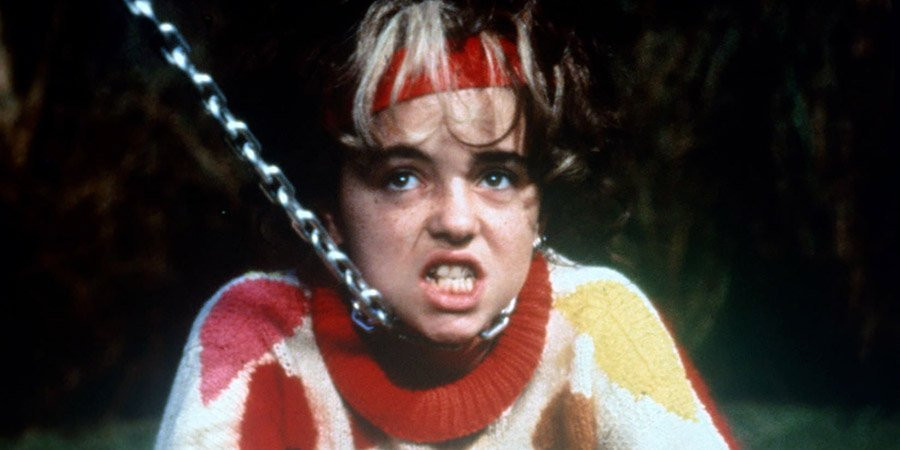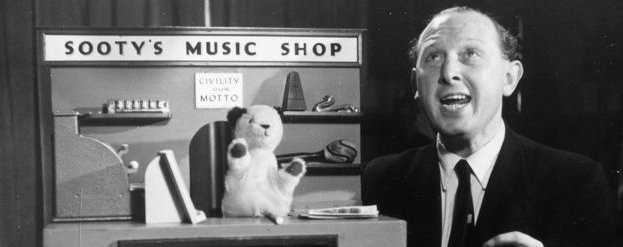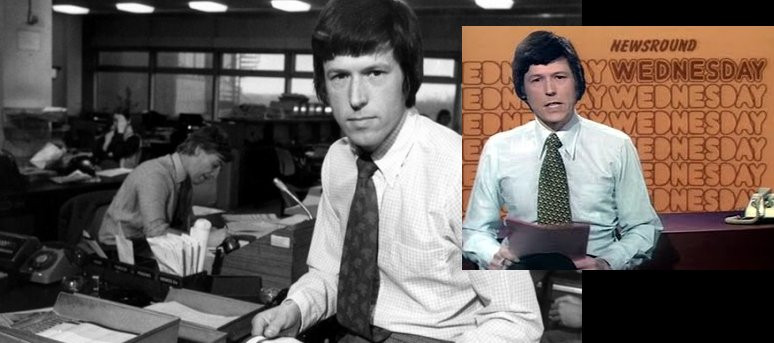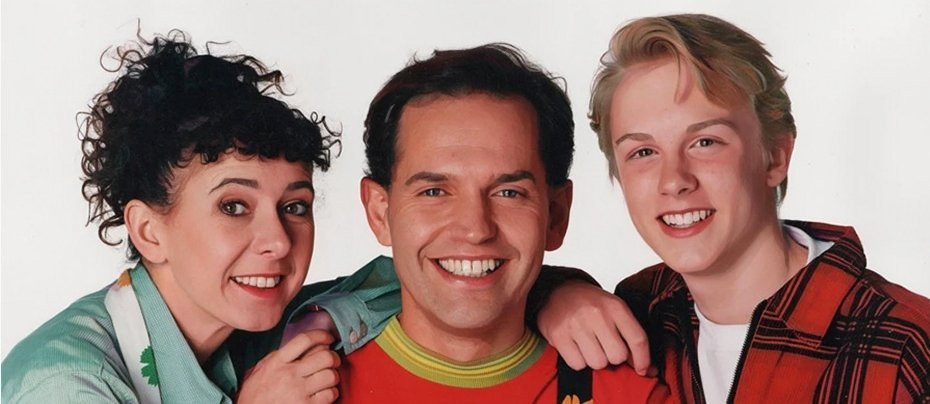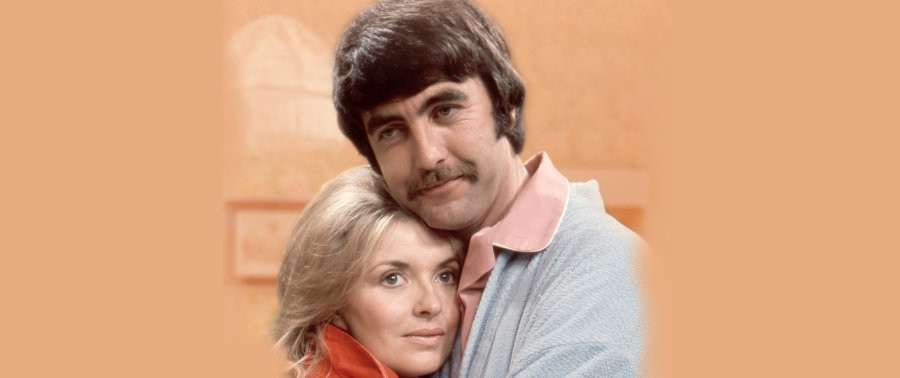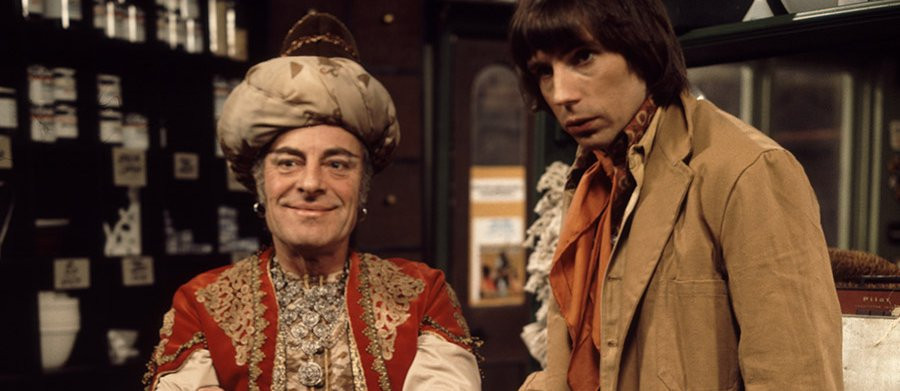
Pardon My Genie
1972 - United KingdomReview by Brian Slade
What do you get if you cross Mork and Mindy with Aladdin? Well aside from the bucket load of the late great Robin Williams, you would get a baffled genie struggling to come to terms with the daily routine of 20thcentury life. In 1972, long before a Happy Days alien encounter unleashed Ork’s craziest son, Thames TV brought British children a much loved comedy along exactly those lines in the form of Pardon My Genie.
The premise is of course based on the age old story of Aladdin, although for this series the setting of Baghdad is replaced with a hardware shop and Aladdin is actually an errand boy in the store called Hal. Setting up the level of puns for the show, his surname is Adden. Hal Adden, played by Ellis Jones, carries some of the renowned traits of his (almost) name sake. At the bottom of society’s social structure, Hal pines for the boss’s daughter and lives alone in a small bedsit with just his dog for company.
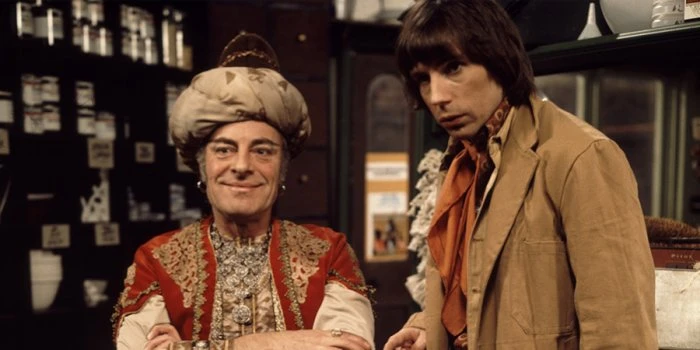
While clearing out old stock in the store, Hal decides to brighten up an old tin watering can with a wire brush, and subsequently brings forth ‘Genie of the watering can.’ The Genie is played by Hugh Paddick, most famous for his involvement in Round the Horne and within that show, as one half of camp duo Julian and Sandy opposite Kenneth Williams. To his credit, Paddick didn’t overly camp Genie, allowing the story more of a central focus. We eventually discover that at this stage Genie is 4,000 years old. Life has not been kind to him. His original lamp has been melted down a number of times, making him at various moments in history the Genie of the plough, drainpipe, back door key and non-return valve. In one final incarnation before reaching his watering can guise, Genie saw his home melted down for a sculpting of a hare painted a delicate shade of brown, affording the glorious line that he was then Genie of the Light Brown Hare!
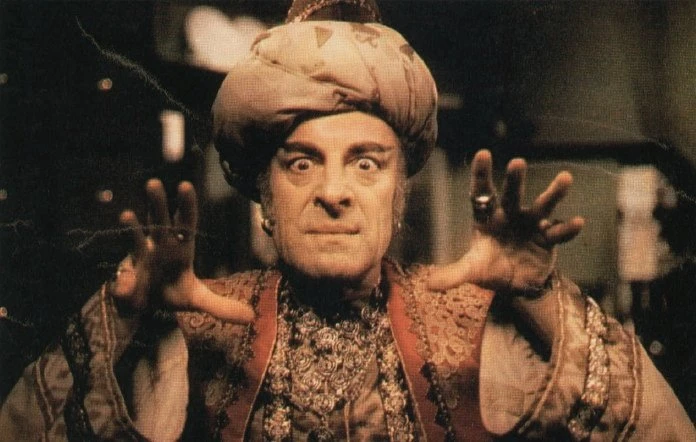
Hal is initially not convinced, declaring that if the person in front of him was a real Genie then ‘henceforth I’ll be Cleopatra,’ a statement Genie takes literally and immediately adorns Hal with the famous Egyptian ruler’s robes. This sets the tone for the antics that we would see from the Genie. The things Hal says are permanently taken literally, such as ‘make me a cup of tea’, which promptly turned him into a brown liquid in a china cup, bubbling with anger at Genie’s failings. Genie says he cannot fail to take things literally and bemoans that, ‘I shall never understand mortals.’ Combine this literal interpretation with the fact that Genie openly admits that at his age his powers are failing, and the scene is set for multiple acts of confusion and embarrassment.
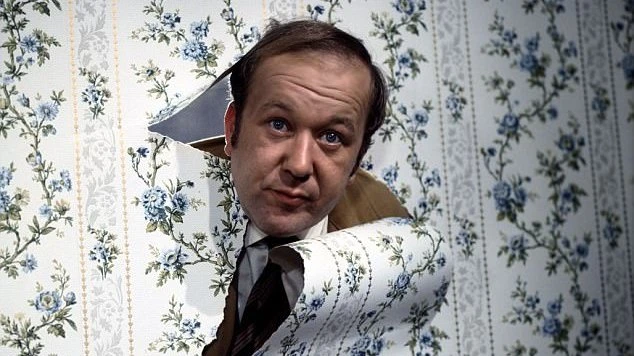
Hal attempts to keep Genie from the world, but one person he cannot keep from seeing the fruits of Genie’s labours is Mr Cobbledick, owner of the hardware store and Hal’s boss. Poor Mr Cobbledick is played by Roy Barraclough, who brings a glorious pantomime feel to his decline into insanity. When Genie and Hal’s confusion results in wishes going off target, it is inevitably Mr Cobbledick who either witnesses or suffers from the results. In the opening episode, he is a dignified businessman preparing to wear a hired dinner suit as he plays Master of Ceremonies at the annual club dance. But from that moment, he descends into paranoid instability. By season two he is under the watch of a psychiatrist for what he believes are hallucinations, with eye-rolling exercises, pills for a nervous stomach and changes to his diet to encourage overnight dreaming all prescribed to try and help. The reason Mr Cobbledick questions his sanity is that for every error Genie makes, by the time Cobbledick tries to convince himself he isn’t hallucinating, Genie has rectified his mistakes, leaving poor Mr Cobbledick bemused and reaching for more solutions.
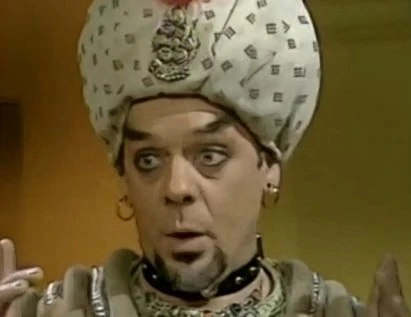
In the second of the two series, Genie is played by Arthur White, brother of David Jason. The change in image is explained away by Genie announcing that they must change form every 500 years, and he was one year overdue. White brings a more pantomime feel to his Genie, with a more booming voice and a Tim Curry-like glint in his eye.
The programme was hugely popular with its audience and acted as an excellent pre-cursor to writer Bob Block’s next venture, Rentaghost. Indeed there are more than a few occasions when Genie’s failings look like something Mr Claypole would initiate in the ghostly comedy, albeit Genie’s misdemeanours are entirely innocent ones.
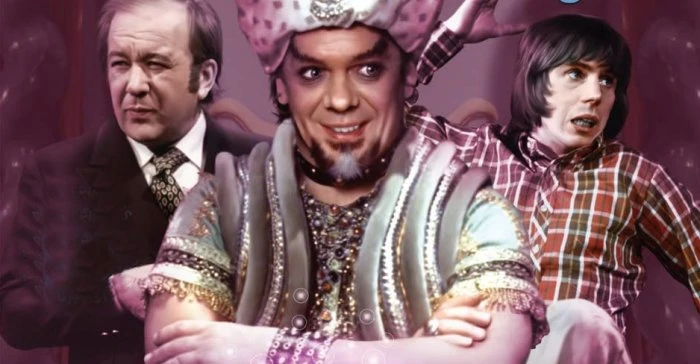
Pardon My Genie was on for 26 episodes across two series and two Genies. It was pantomime on television, just set in a more contemporary setting, and so the slide into insanity for Mr Cobbledick so gloriously played by Barraclough provides the standout memories. Seeing him attempting to fly in his pyjamas while hitting the hat off the local policeman and blowing raspberries at customers he would normally fawn over in store is typical of the fun he brings, and it’s for these sort of over the top scenes that Barraclough is the principal memory for many. It’s a fun show of knockabout comedy, dreadful puns and amusing site-gags, and although it doesn’t get the same nostalgic adulation that Block’s next venture did, Pardon My Genie is unquestionably a golden memory for many a child of the time.
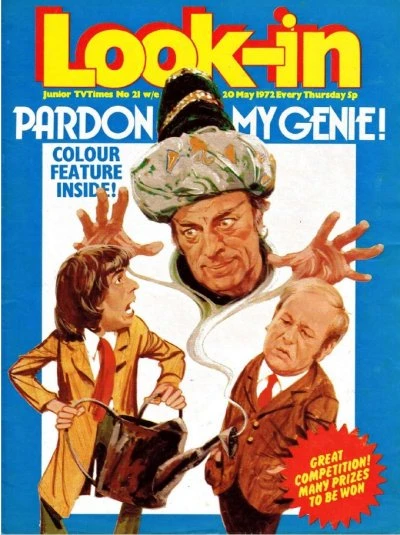
Seen this show? How do you rate it?
Seen this show? How do you rate it?
Published on September 2nd, 2020. Written by Brian Slade for Television Heaven.


